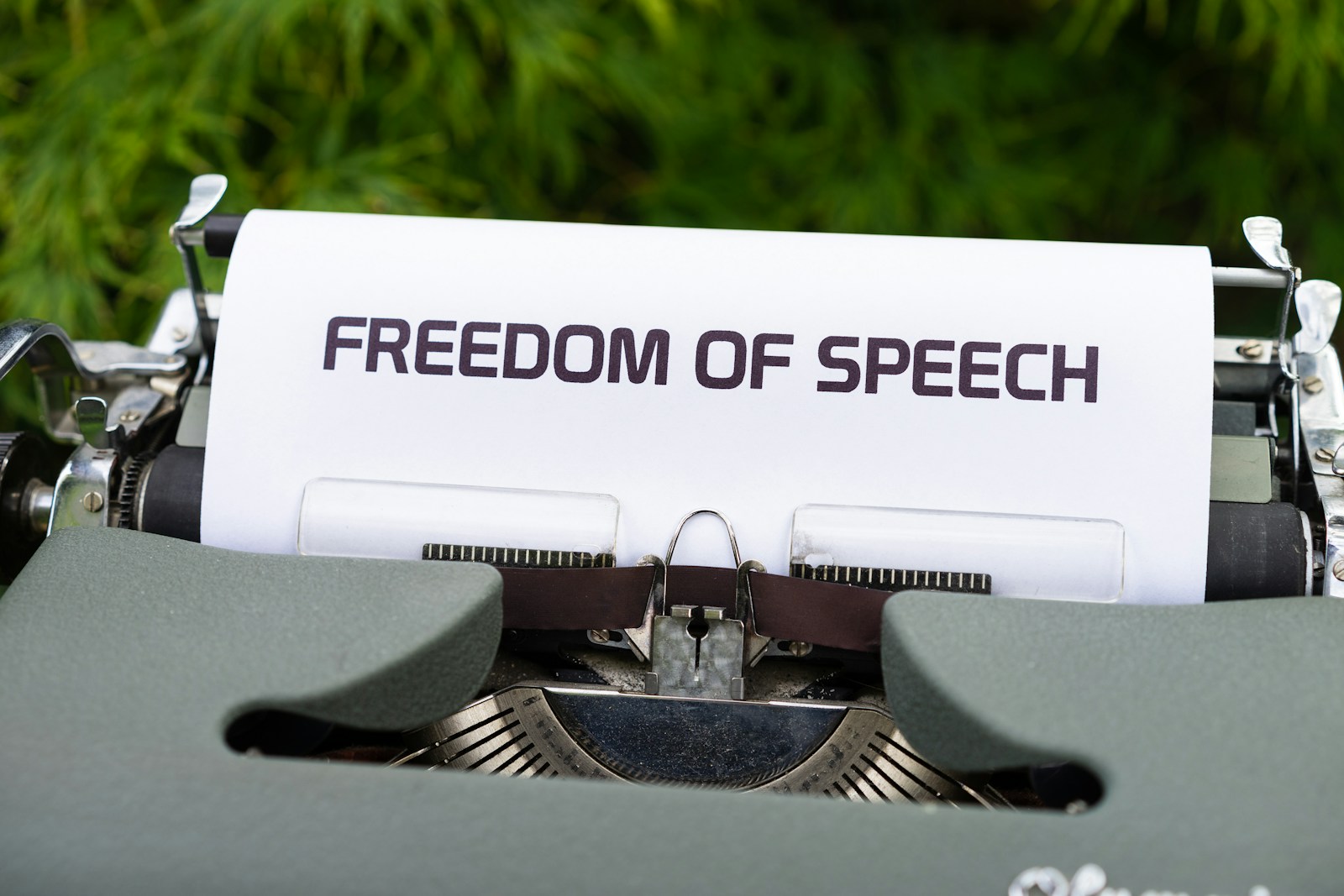Freedom of Speech and Expression in Cyberspace

Introduction
The Indian Constitution guarantees certain fundamental rights to its citizens, including the right to freedom of speech and expression under Article 19. While this right is fundamental, it is not absolute. Article 19(1)(a) articulates the freedom of speech and expression, subject to reasonable restrictions outlined in Article 19(2) in the interest of society, public order, morality, security, and other specified concerns.
A) Constitutional Framework: Freedom of Speech and Expression
Article 19(1)(a) provides that “all citizens shall have the right to freedom of speech and expression”. However, this must be read in conjunction with Article 19(2), which allows the State to impose restrictions in matters including:
- Defamation
- Contempt of court
- Decency or morality
- Security of the State
- Friendly relations with foreign states
- Incitement to an offence
- Public order
- Sovereignty and integrity of India
Legislation enacted under these grounds is prima facie presumed valid, and courts generally give weight to the legislature’s judgment regarding the reasonableness of such restrictions. Nevertheless, such judgments are subject to judicial review.
H.M. Seervai[1] has observed that interpreting “reasonable restrictions” is complex, especially when evaluated through the “clear and present danger” standard developed by the Supreme Court for freedom of speech and press. Unlike the First Amendment of the U.S. Constitution, which primarily protects speech, Article 19(1)(a) in India embodies the principle of “liberty with order”, balancing individual freedom with societal interests. This principle was affirmed by the Supreme Court in M.H. Devendrappa v. Karnataka State Small Industries Development Corp[2]., emphasizing that fundamental freedoms may require reasonable limitations to safeguard public order.
The harmonious construction of fundamental rights is crucial. For example, the free movement of citizens may be restricted if vociferous speech threatens their safety or security. Similarly, one person’s exercise of free speech may necessitate limitations to protect the rights of others.
The Supreme Court in S. Rangarajan v. P. Jagjivan Ram[3] provided a clear test for reasonable restrictions under Article 19(2):
Freedom of expression cannot be curtailed unless it creates a pressing danger to the community. Any anticipated threat must be proximate, direct, and intrinsically linked to the expression itself – like a “spark in a power keg.” Remote or speculative dangers do not justify restrictions.
B) Freedom of Speech and Expression in Cyberspace
Applying the constitutional right to the Internet and digital media requires careful consideration of the medium’s nature. While the principle of “liberty with order” still applies, courts must interpret reasonable restrictions in a manner that acknowledges the unique characteristics of cyberspace, including rapid dissemination, permanence, and global reach of content.
In K. Narayanan v. State[4], the Supreme Court recognized that Article 19(1)(a) encompasses the right to acquire knowledge, read, and disseminate information, subject only to reasonable restrictions. By extension, online expression—whether through social media, blogs, or other digital platforms—falls under the ambit of Article 19, but must adhere to the same safeguards of public order, morality, and security.
The evolving digital landscape underscores the need for balanced regulation that protects society without undermining the fundamental right to freedom of speech. Legal interventions must be targeted, proportionate, and context-sensitive, ensuring that cyberspace remains a platform for legitimate expression while mitigating risks to public interest.
Conclusion
Freedom of speech and expression remains a cornerstone of India’s democratic framework, yet its exercise is not without boundaries. In the digital age, cyberspace has expanded the reach and impact of expression, making it imperative to balance individual liberties with societal interests. Reasonable restrictions, as envisaged under Article 19(2), continue to serve as essential safeguards, ensuring that the right to speak freely does not compromise public order, morality, or national security.
[1] (1959) 360 U.S. 684.
[2] AIR 1998 SC 1064
[3] AIR Online ry1989 SC 37.
[4] AIR 1973 Ker 97 (FB).
By entering the email address you agree to our Privacy Policy.